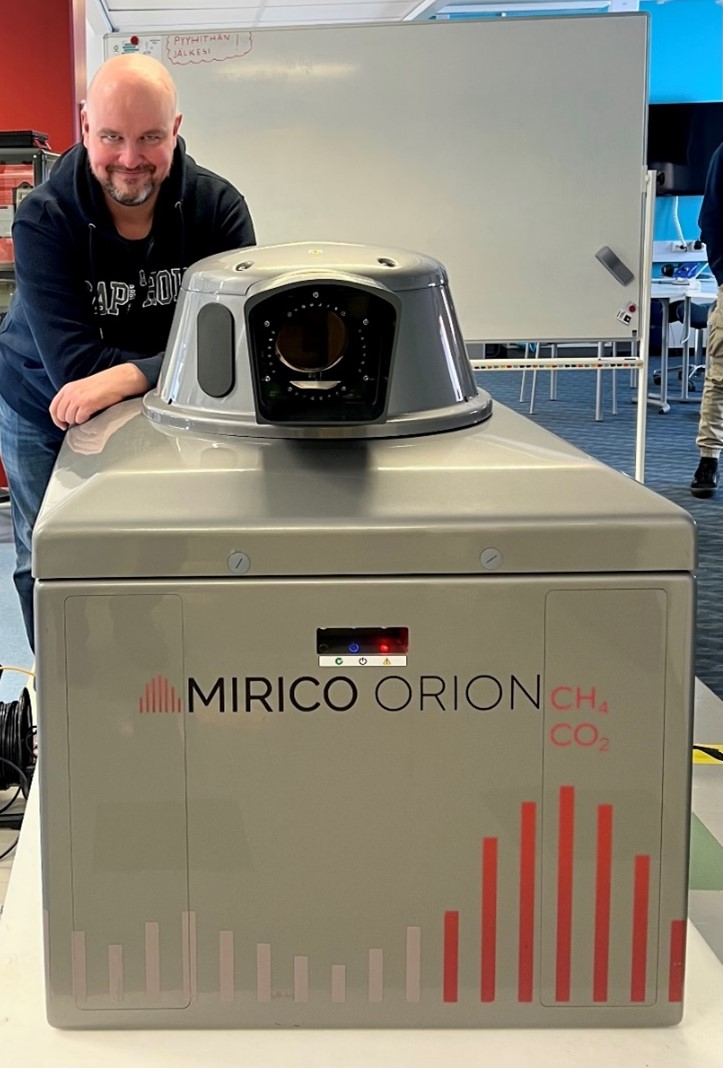New method of greenhouse gas emission mapping to be developed with MIRICO’s Orion
May 12, 2022
New method of greenhouse gas emission mapping to be developed with MIRICO’s Orion

Mirico’s technology is now helping to develop an exciting new method of mapping greenhouse gas balances in the agricultural sector.
In joint research, the University of Eastern Finland and Natural Resources Institute Finland are using a multi-gas Mirico Orion as part of research to monitor the greenhouse gas exchange in fields and then visualise it in a three-dimensional model.
The agricultural sector is a significant contributor of greenhouse gas emissions worldwide. The IPCC estimates that agriculture is directly responsible for 8.5% of all greenhouse emissions, with 75% of nitrous oxide emissions coming from the sector. To help understand exactly where and how these greenhouse gases are emitted during agricultural processes, reliable measurement methods are needed.
Mirico’s products will allow researchers to continuously monitor and map tens of hectares of fields over long periods of time, providing spatially varying greenhouse gas balance maps. This will help identify when a field is a source of, or sink for, greenhouse gas emissions during different phases of crop production which can then be linked back to different farming practices.
The initial stage of the project will focus on the two main greenhouse gasses, CO2 and methane, which will be monitored using a single Orion instrument. The next stage of the project will then look at nitrous oxide emissions using a separate Orion.
Mirico’s Orion instruments provide a unique, robust and accurate solution to continuous emissions monitoring. Greenhouse gas emissions can be accurately quantified across entire sites through reliable, continuous, wide-area monitoring with data collected and analyzed in real-time. This enables operators to detect, locate, quantify, and visualise emissions swiftly and accurately through all weather conditions.
Aku Seppänen, Professor at the University of Eastern Finland said “Bringing cross-sectional imaging alongside the Mirico Orion’s emissions monitoring data will really help us to further our understanding of how emissions change across the different phases of crop production. We’re excited to be developing this technique and looking forward to the results.”
Lee Billingham, Head of Business Development at Mirico said “The agricultural sector is a big source of emissions and this is being matched by real ambition to find solutions to reducing them. It is exciting for us as our technology is unique and will provide the insights the sector needs to make changes, reduce emissions and validate the results.”
To find out more about how Mirico could help you monitor emissions, contact us today.